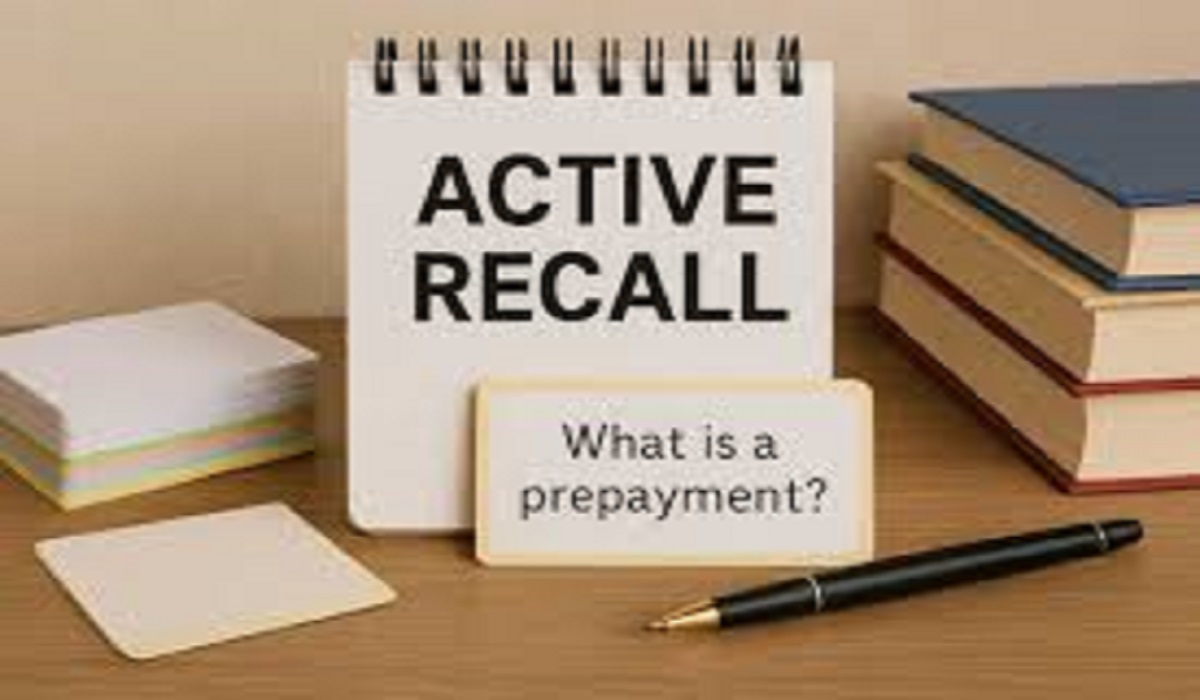The Ultimate Study Technique for Exam Success
The Ultimate Study Technique for Exam Success: In today’s fast-paced academic world, students are constantly searching for the most effective study techniques to maximize retention and ace their exams. One method that stands out above the rest is Active Recall—a scientifically proven learning strategy that enhances memory and understanding.
But what exactly is active recall, and how can you use it to improve your exam performance? In this comprehensive guide, we’ll break down everything you need to know about active recall, including:
- What active recall is and why it works
- How to implement it effectively in your study routine
- Advanced techniques to supercharge your learning
- Common mistakes to avoid
- Real-world success stories
By the end of this guide, you’ll have a step-by-step blueprint for using active recall to study smarter, retain more, and achieve top grades in your exams.
What Is Active Recall?
Active recall is a learning technique where you actively stimulate your memory by retrieving information without looking at the source material. Instead of passively rereading notes, you test yourself on key concepts, forcing your brain to recall and reinforce knowledge.
Why Is Active Recall So Powerful?
- Boosts long-term retention – Studies show active recall strengthens memory better than passive review.
- Identifies knowledge gaps – Helps you pinpoint weak areas before exams.
- Saves time – More efficient than traditional study methods like highlighting or rereading.
The Science Behind Active Recall
Research in cognitive psychology (e.g., the “testing effect”) proves that retrieving information from memory enhances learning. Key studies include:
- Karpicke & Roediger (2008) – Students using active recall outperformed those who just reread material.
- Bjork’s Desirable Difficulties – Challenging recall leads to stronger memory formation.
Active Recall vs. Passive Learning
| Active Recall | Passive Learning |
|---|---|
| Testing yourself on material | Rereading notes |
| Engages the brain actively | Minimal mental effort |
| Improves retention | Leads to quick forgetting |
| Efficient & time-saving | Often time-wasting |
Passive learning tricks you into feeling familiar with content, while active recall ensures true mastery.
How to Use Active Recall Effectively?
1: Break Down Material into Key Concepts
- Use bullet points, flashcards, or mind maps.
- Focus on high-yield topics likely to appear in exams.
2: Self-Testing
- Flashcards (Anki, Quizlet) – Write questions on one side, answers on the other.
- Practice Questions – Use past exams or problem sets.
- Teach Someone Else – Explaining concepts reinforces memory.
3: Spaced Repetition
- Review material at increasing intervals (1 day, 3 days, 1 week).
- Apps like Anki automate this process.
Best Active Recall Techniques
A. The Feynman Technique
- Teach a concept in simple terms as if explaining to a child.
- Identify gaps in your understanding.
- Simplify further and review.
B. Closed-Book Summarization
- After studying, write down everything you remember without looking.
- Compare with source material to spot weaknesses.
C. Blurting Method
- Quickly write or speak everything you know about a topic.
- Check notes afterward for accuracy.
Common Mistakes & How to Avoid Them
1:❌ Mistake 1: Only using passive review (highlighting, rereading).
✅ Fix: Replace passive review with self-testing.
2: ❌ Mistake 2: Waiting too long between recall sessions.
✅ Fix: Use spaced repetition for optimal retention.
3: ❌ Mistake 3: Not applying concepts to real problems.
✅ Fix: Practice with exam-style questions.
Success Stories
- Medical student improved USMLE scores by 30% using Anki flashcards.
- Engineering student aced finals by switching from passive reading to active recall.
FAQs About Active Recall
Q1: How often should I use active recall?
A: Daily, with spaced repetition (e.g., Anki’s algorithm).
Q2: Can active recall work for math/science?
A: Yes! Practice solving problems without looking at solutions first.
Q3: Is active recall better than note-taking?
A: Notes help, but self-testing is far more effective for memory.
Q4: How long before exams should I start?
A: At least 3-4 weeks for best results.
Q5: What if I keep forgetting answers?
A: Adjust review frequency and break concepts into smaller chunks.
Conclusion: Start Using Active Recall Today
Active recall is the #1 study technique for exam success. By testing yourself regularly, spacing out reviews, and avoiding passive learning, you’ll retain more, study faster, and score higher.
Final Thoughts
For more study tips, teaching strategies, and educational insights, visit TeacherEducator.com.
Would you like any refinements or additional sections? I can expand further on techniques, tools, or case studies!
